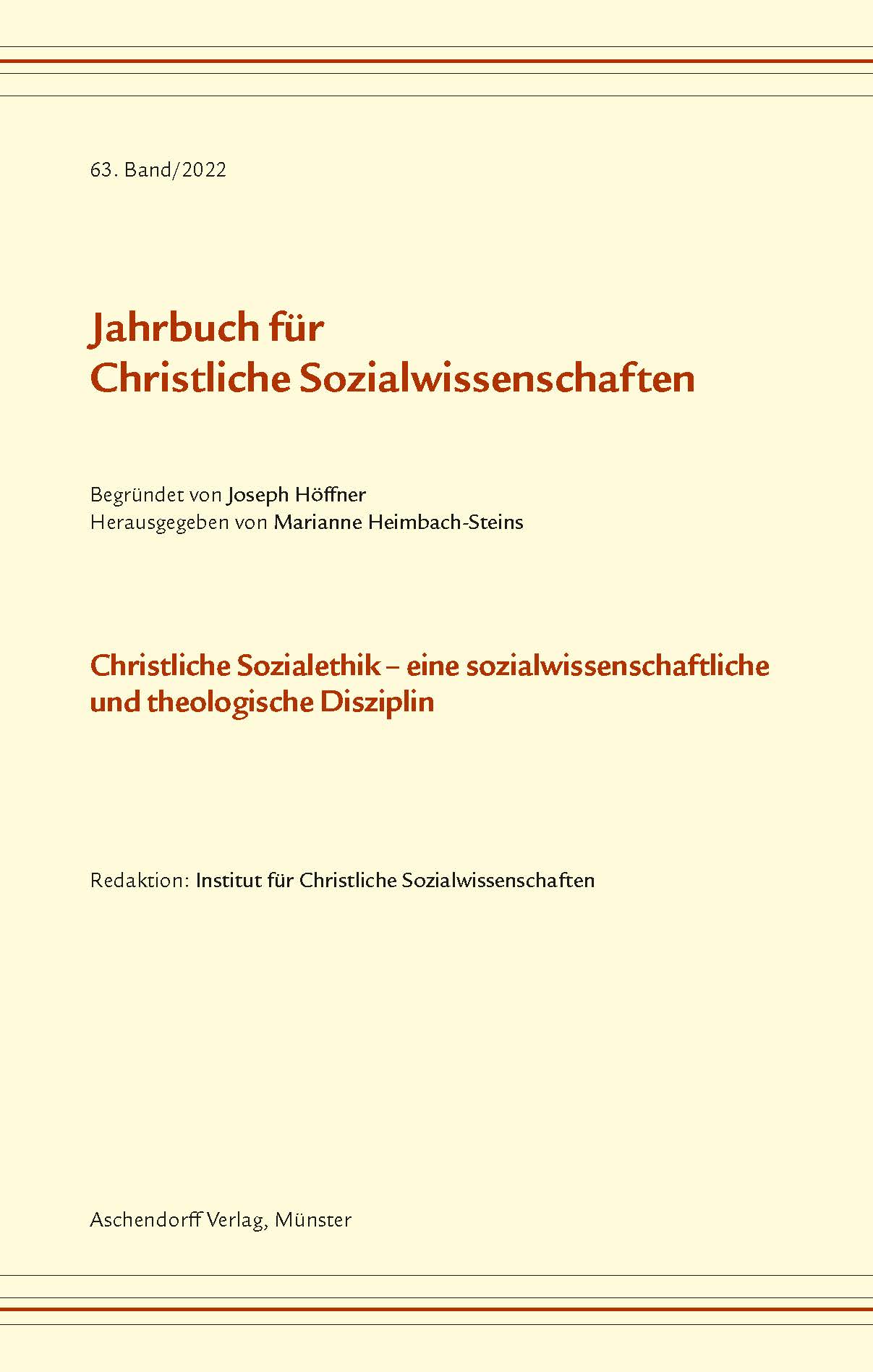Theologie der Sozialethik im Blick auf die Praxis gelebter Freiheit
DOI:
https://doi.org/10.17879/jcsw-2022-4407Abstract
In the shadow of the natural law, the rationalism, and the human rights approach, there is a strong tradition in social ethics of abstinence from explicitly theological arguments. In contrast, methodologically a bilingualism is demanded with regard to the linking of theological and secular forms of language. This serves not only the comprehensibility towards the outside, but also the human- and social-scientific examination and concretion of theological norms. Christian faith is thus not understood as an irrational antagonist of knowledge, but as an ethically relevant, criticizing, motivating and integrating perspective of meaning and knowledge-enabling form of life. The theological aspect of social ethics is not to be understood as an alternative justification, but results from the reflection of the practice of lived freedom. The tradition of humanism at the intersection of theology and philosophical anthropology can help to discover in a new way the relevance of the liberating dimension of the Christian faith and its orientation towards successful life. In this process, the contingency and self-endangerment of the project of modernity brings forth a new urgency of reassurance with regard to its normative and theological foundations beyond a fulfillment in this world. In this search process, Christian social ethics proves to be an original form of God's speech.

